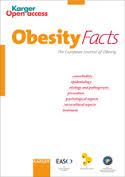 In our line of work, we see it all — mega-corrections that don’t quite rise to the level of retraction, letters to the editor that point out seemingly fatal flaws in papers that remain untouched, and studies retracted for what seem like minor reasons. It can make you wonder what makes a paper worthy of a retraction. A recent case in an obesity journal may not provide a definitive answer, but it gives us a lot to chew on.
In our line of work, we see it all — mega-corrections that don’t quite rise to the level of retraction, letters to the editor that point out seemingly fatal flaws in papers that remain untouched, and studies retracted for what seem like minor reasons. It can make you wonder what makes a paper worthy of a retraction. A recent case in an obesity journal may not provide a definitive answer, but it gives us a lot to chew on.
Here’s the story: In September 2013, Rosely Sichieri and a colleague from the State University of Rio de Janeiro submitted an article to Obesity Facts, “Unbalanced Baseline in School-Based Interventions to Prevent Obesity: Adjustment Can Lead to Bias?” The article examined statistical issues in randomized controlled trials of school-based weight loss programs. Peer reviewers said the paper needed major revisions before it could be accepted; the authors revised the paper enough in a second draft, submitted in November 2013, that the original reviewers accepted it. The paper was published in June 2014.
Then, in September 2014, a group of authors including David Allison of the University of Alabama, Birmingham, and colleagues from Clemson, Thomas Jefferson, and the University of Minnesota, wrote a critical letter that was published in the journal in April. The letter, according to a just-published editorial: Continue reading When should a paper be retracted? A tale from the obesity literature